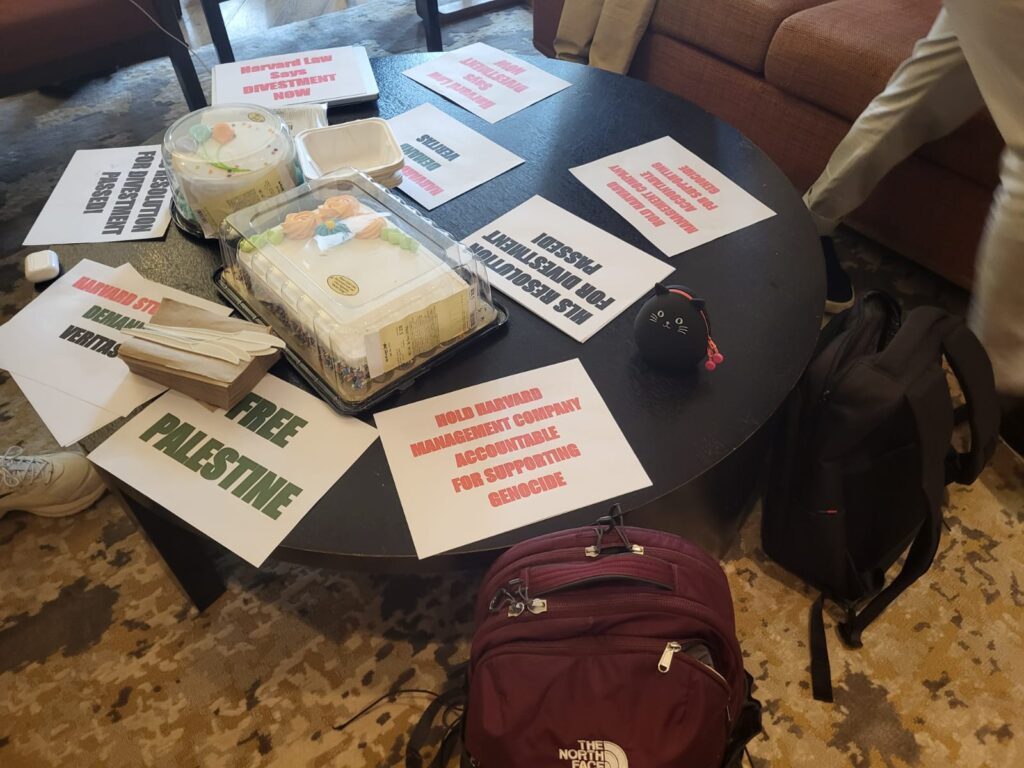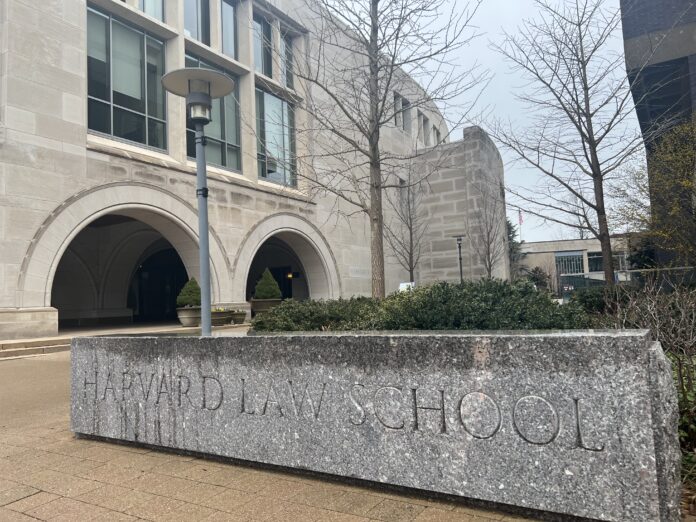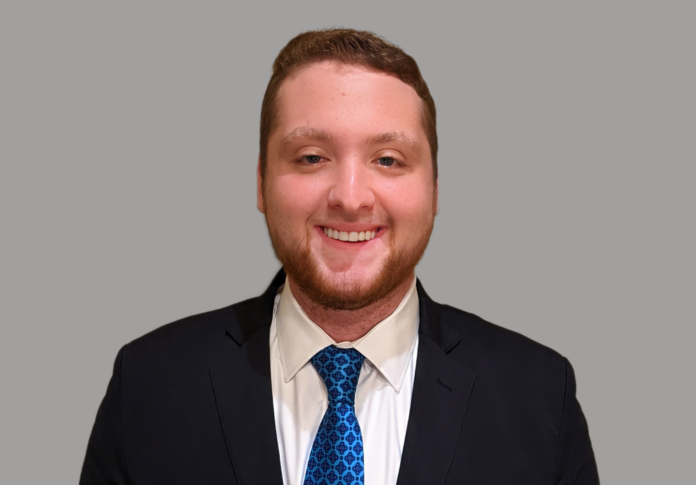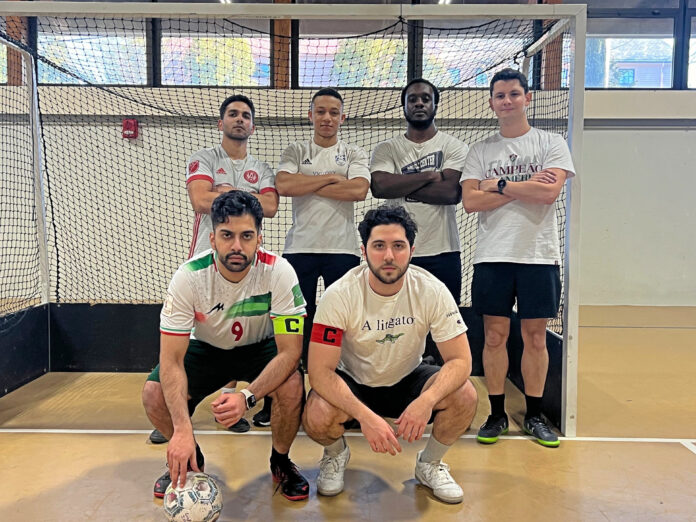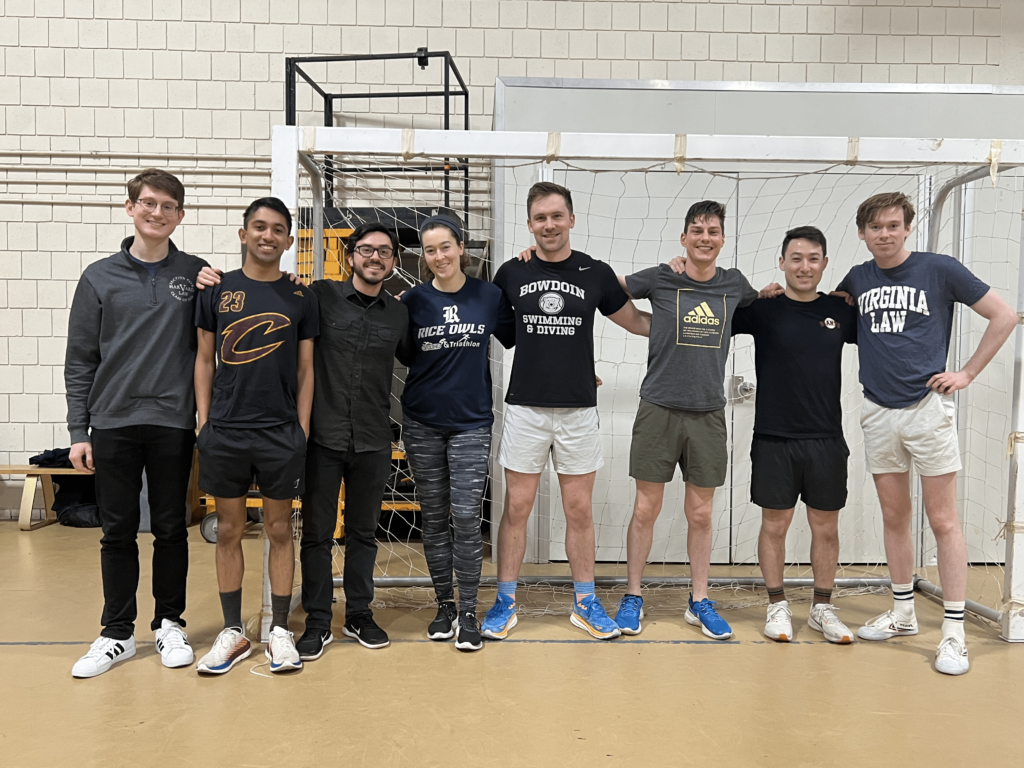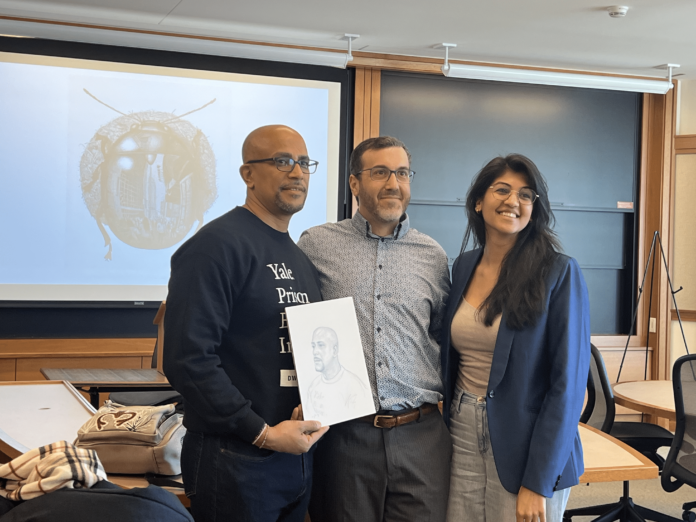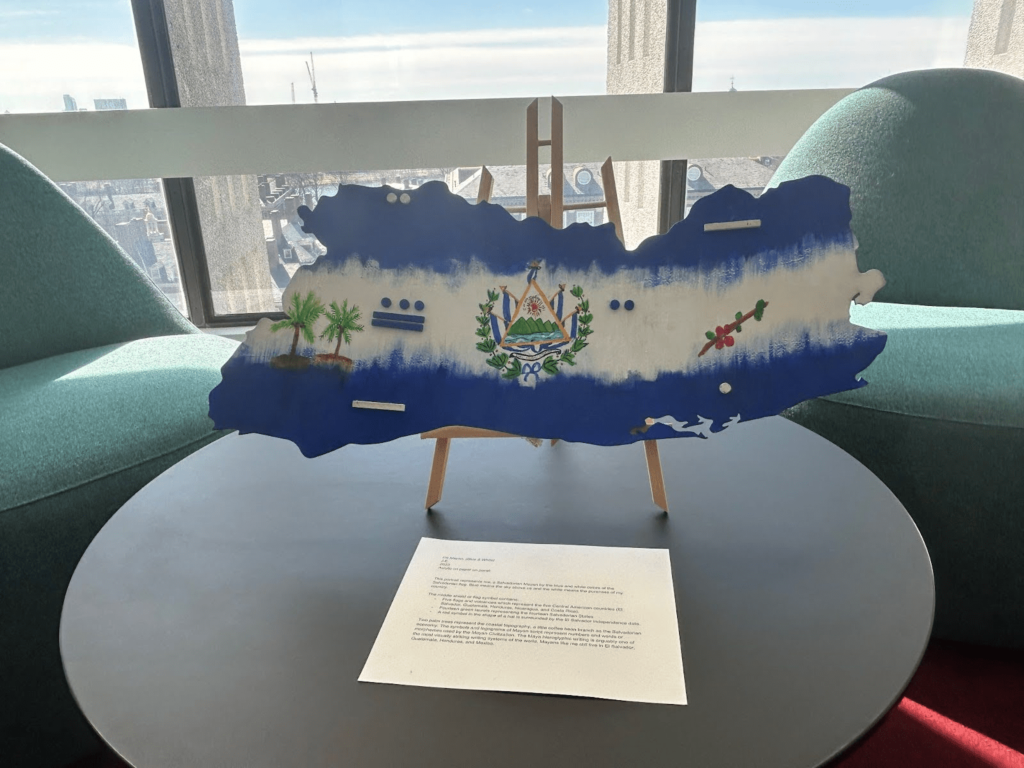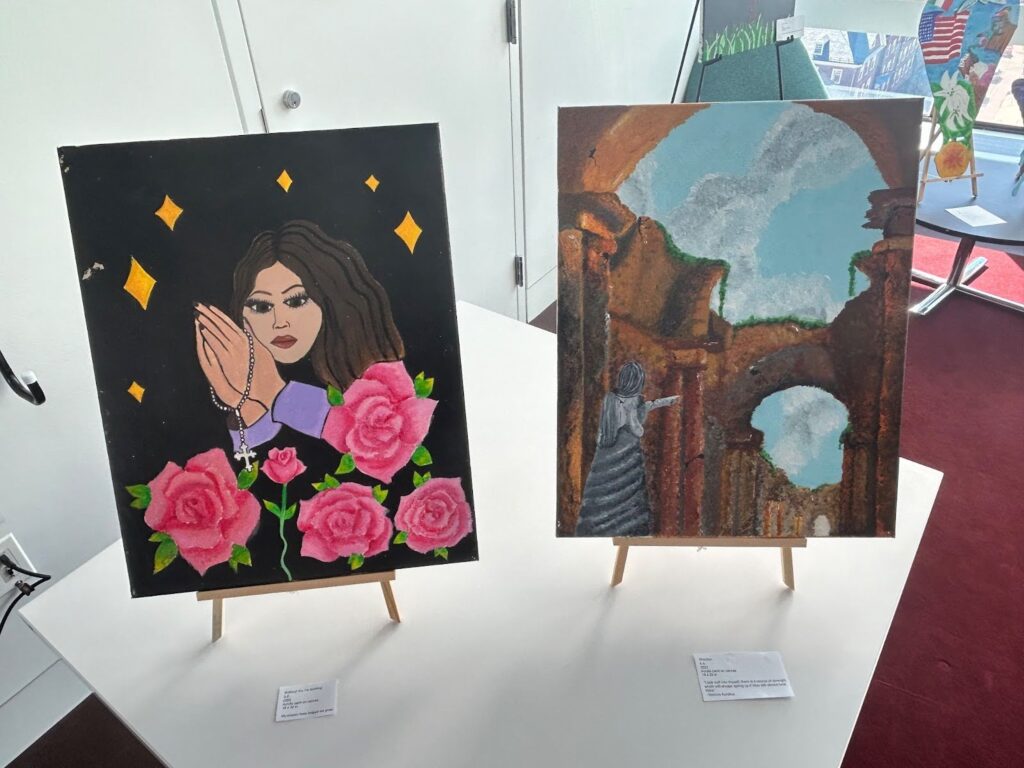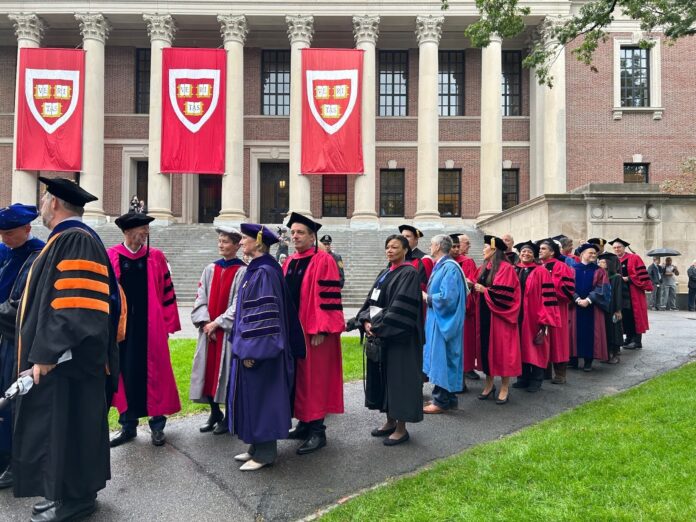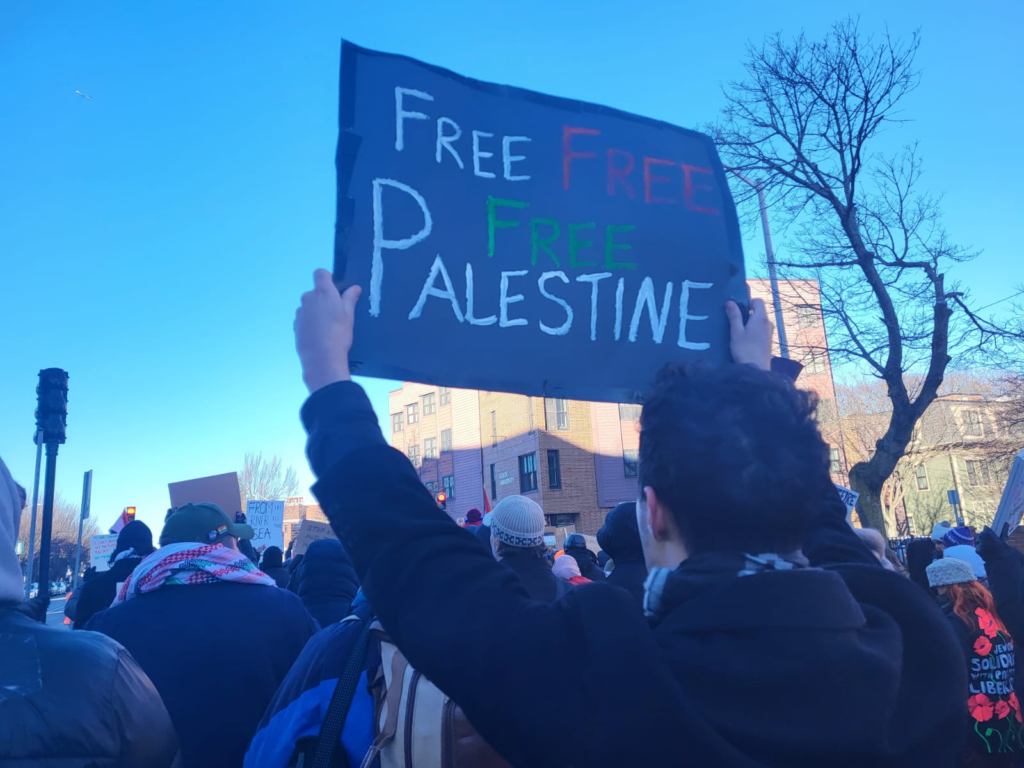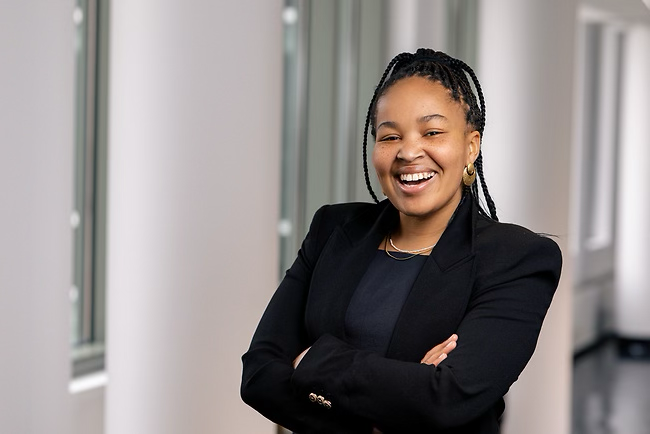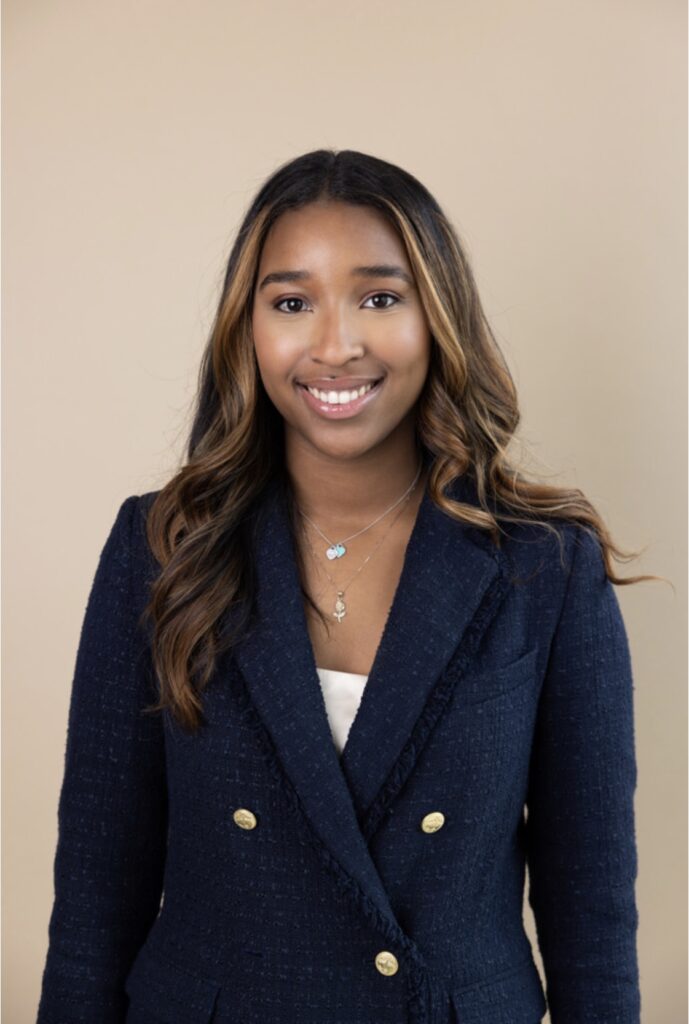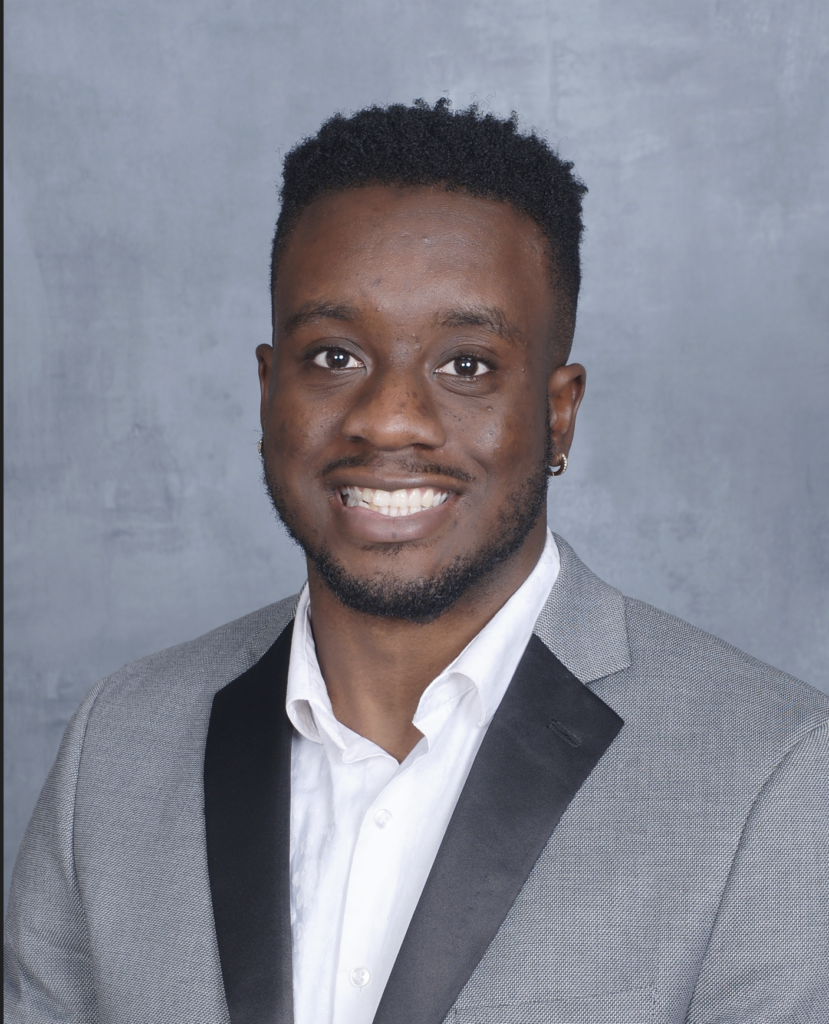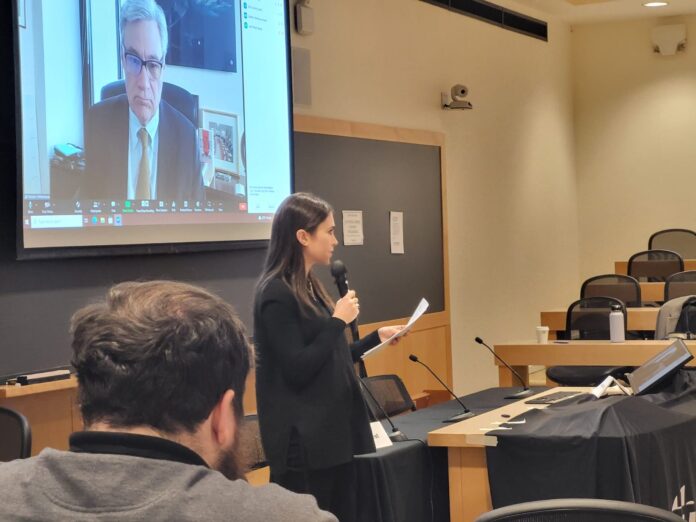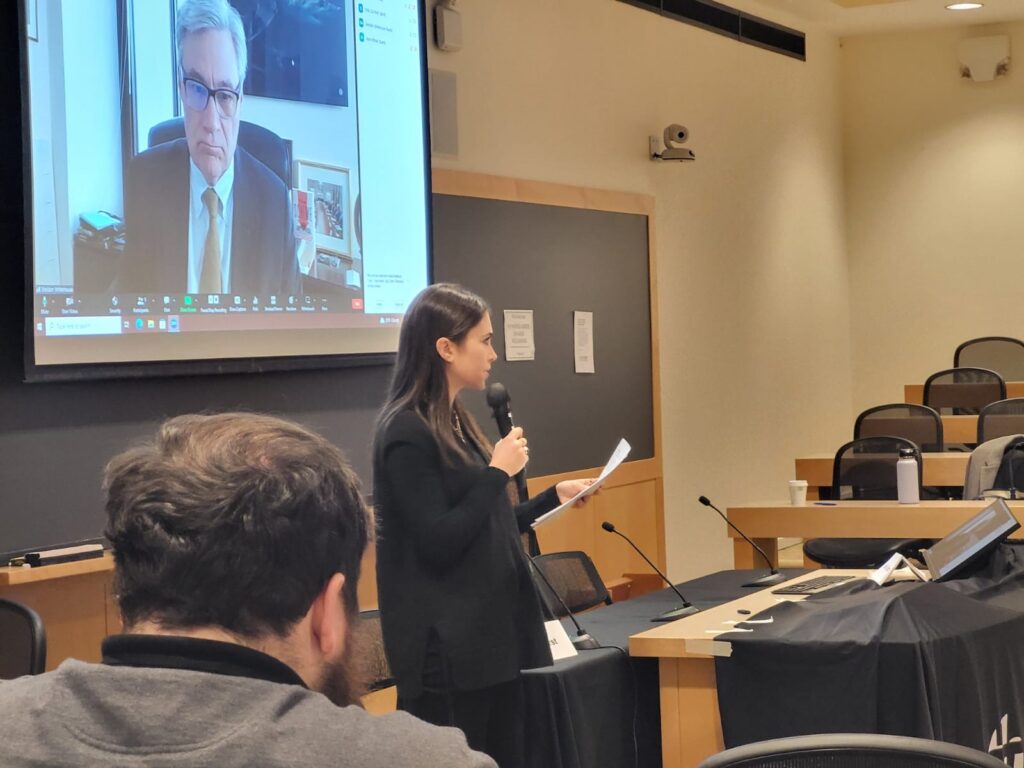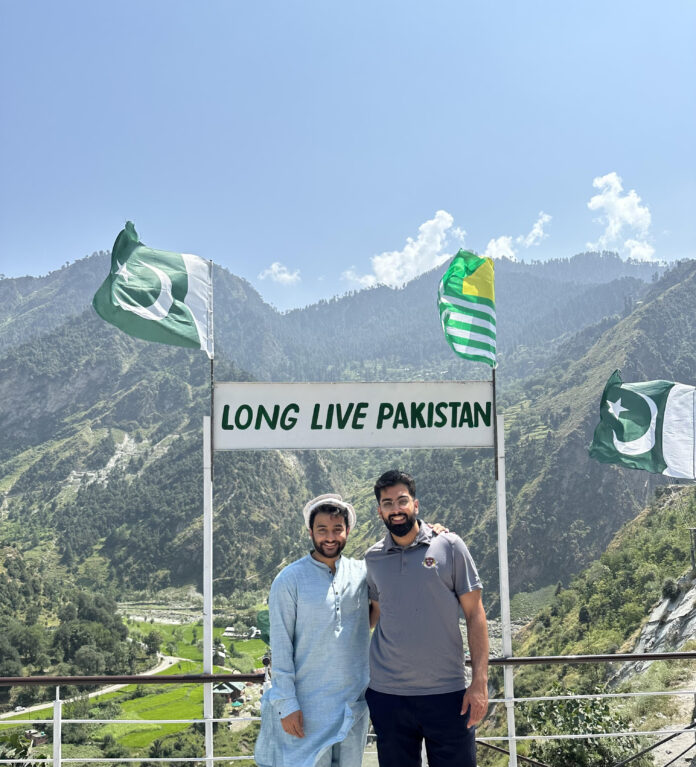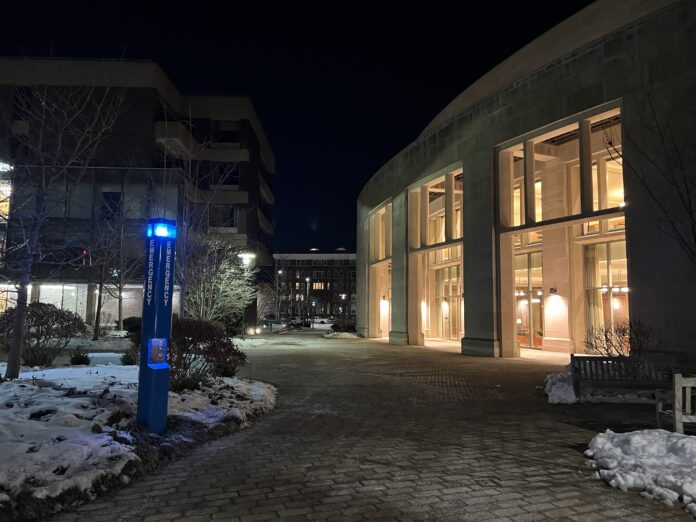Interviews have been edited and condensed for clarity. Any grammatical errors should be attributed to The Record editors and not to the candidates.
Why do you want this position?
Healy: I want this position because I think it’s the best way for me personally to serve student organizations in this campus. I think as a 1L I’ve been lucky to go to a lot of events put on by student organizations. Lunch talks, evening events, and even on weekends like Apple picking and things like that. It’s kind of like why I want to become a lawyer. I felt that becoming a lawyer was the best way for me to make change in the world and serve my community given my skills and my interest. And it’s the same with the DSO position; this position requires someone who is very efficient, understanding of a lot of organizations, and is an active participant with the student organizations. I don’t think there’s any way to be a good DSO without going to their events and enjoying them. I think it would be really hard to have motivation to the logistical work of a DSO without going to the events as a student.
What qualifies you for this role? Do you have any experience with roles like this?
Healy: Yeah, I think there’s two things that specifically I’ll talk about that qualifies me as I kind of mentioned before, there’s someone who has to be someone who’s very efficient and for me that that means being on top of things, being proactive. I know as a student organization leader, one of the most frustrating things is when an entity has money or it has something that you need, they’re willing to give it to you, and they just don’t get back to you in time for an event to go on.
In addition to efficiency, it’s someone who has empathy to understand what it’s like to be a club leader and knows the value that clubs bring to this campus.
You asked about qualifications, and in college I led 3 clubs and so of course I’m very familiar with working with fellow students or clubs and advocating on their behalf to student government at my college and to the college offices.
What do you see this role as?
Healy: I think this role is really interesting because it’s one of only three student body wide elected positions. And so with the campus of you know a few thousand students, I think this role has to be very responsive to students. It takes on a lot in terms how many different clubs, organizations, and affinity groups that a DSO has to be aware of.
Additionally, as DSO you kind of have two constituencies. You have both the student body who elects you, but then also you don’t work directly with students, instead you work with students organization leaders. So I think you’ll be able to balance that kind of those two constituencies of clubs and also keeping every club and every student in mind as well.
What is your leadership style?
Healy: I think this is a difficult question to depend on because there’s obviously a lot of different things that a leader needs. I’m a sucker for alliteration, so I’ll say I think there are two things that I bring to the table: persistence and patience.
For me as DSO and for any club leader, you’re elected for a year, which isn’t that long in the grand scale of life, for sure. But as a club leader, I know it can definitely feel much longer, definitely at the start of a term. So I think I bring the persistence in that I keep at it, no matter the frustrations of a role.
In terms of patience, things can get tough and tense among other student leaders and student orgs. For example, if funding isn’t great or there’s frustrations with miscommunication.
I guess for me as a leader, what a leader should be as someone who is consistent and they bring that same level of energy no matter what. If the group is really excited about something, it’s making sure that that excitement turns into action and specific results for the club. But at the same time, if people are tired, it’s also someone who brings up the energy. It’s someone who can, you know, bring up the energy and make sure people are continuing to put on events even if people are feeling tired.
How should student orgs be allowed to exercise free speech? And where ?
Healy: This is a question that the student body has been grappling with the past year and I’ve only been here a year, but it sounds like the past decade and really decades right now on college campuses. But the way I feel that, free speech is a founding principle of our country, but like if free speech isn’t allowed and especially encouraged at university, then where else would it be encouraged?
There’s other institutions in our lives like the government and the workplace where free speech might be legal, but there’s definitely a lot of disincentives against it. Whereas a university should be the place for dissent and should be the place for new ideas to emerge and if you look at the history of our country, that’s how it’s happened. A lot of times, new ideas have begun at universities, even if they’re outside the mainstream and it’s begun with young people.
So I think it’s hard to make a general rule for free speech, I mean, the Supreme Court has grappled with that for centuries and that it can’t doesn’t have a perfect rule for that. But I think for me, especially at a university, free speech should be presumptively allowed and there should be a really good reason to not allow it. Basically, I think the causal connection between my speech and how it affects someone else’s should have to be really tight before my speech is curtailed.
Does the presence of HUPD officers make student org events safer? How do you propose making student org events safe?
Healy: That also relates to a national conversation we’ve been having, at least the past four years, and certainly much, much longer than that. I know the HUPD team, I know some of the officers from Securitas, and they’re nice people. But I know that certainly as the national conversation has revealed, [police being] nice people alone doesn’t mean that police are necessary in a certain place. It’s a hard question to answer. I think there’s certainly no bright line rule for how many police officers should be at a place. Maybe campus leadership should be more responsive to that going forward and really seeking out student feedback for what they need because ultimately the police are here to protect us. Of course it’s important for the buildings themselves to be secure, but I mean, the whole point of the university is really its students. And so I think our feedback should be taken into account more going forward to see what level is appropriate.
How do you envision the relationship with the Dean of Students (DoS) and student orgs?
Healy: I think it’s really easy to say, like of course you know, they should play a role. It’s also easy to say, like students should have complete freedom over money because you know, as I just articulated, we’re the whole point that the college exists. I’m very pro-students having power and authority, especially because if we can’t be trusted with, you know, thousands of dollars…well, some of us and many of us are going to have positions of influence. Lawyers alone, no matter the title. have a lot of discretion over people’s lives. So I think we should be trusted with called budgets as a way to, you know, practice having that authority because we’re going to have that going forward. You know, we’re young people will become the leaders of our, you know, in our society going forward.
One thing that the DOS for sure brings to the table is institutional memory and kind of a security check in terms of budgets. By institutional memory, I mean the vast majority of students are only here for three years. So DOS, their employees, their office has been around much longer than any one of us students, and that’s something they can bring to the table, by kind of remembering what clubs were around at a certain point, what they were like. That’s really important.
And also I think [DOS] can play a role in just ensuring that club money is spent wisely within; I think students should be given great bounds of discretion, but also the point of organizations is its members. We want to make sure that student leaders don’t just blow money. So I think having DOS can make sure certain orgs are not wild with expenditures.
Do you think student orgs should be able to use Belinda Hall for events ?
Healy: I think I want to find a way. This relates to the free speech question for sure. I understand students who, unlike me, live off campus and want a space in between classes to stay. They might say it’s not fair to kind of use it for events, or that there’s other spaces for that.
I also understand that Belinda Hall is an important space for events. And I think, you know if other students want quiet spaces, you know there are other quiet spaces on campus. Like, really quiet, like, Langdell is oppressively quiet in my opinion. Like I said before, it should be (not to use this word again, I’m stuck on 1L brief wording), presumptively allowed to be used for a lot of different purposes.
Because I think university life, there’s plenty of other places in our life where it’s very clean and we have to follow the rules in terms of being fired or put in jail. Like there’s many areas in our life that are like that, and I think university is one place where we can be a little more free. Like I said, university life can be a little messy and I think it’s important to err on the side of allowing events. Again, it’s hard to have a bright line rule, but I think in general, it should be allowed.
I want to find a way to accommodate both students who want to use it to hang out and also organizations and groups of students who want to use it to make change on this campus.
To what degree, in your opinion, should the Office of Community Engagement, Equity, and Belonging (CEEB) be involved in the finances of student organizations on campus? How does the philosophical independence of student organizations factor into your analysis?
Healy: Yeah, I think this is related to what I said about DOS. It’s just hard for any organizations to work together with students or CEEB. So like I said before, I think students should be given a lot of leeway with student organizations, especially because there are other students, like for example, my position, who are there to help out and make sure that you know there’s no mistakes made with money and things like that. So CEEB can be kind of another layer of protection, but that can’t be turned into another layer of bureaucracy that prevents events, especially if they use that discretion and that authority in a biased way or in a way that isn’t supporting what students want. If they use it to color what student organizations do, that would definitely be problematic.
What, if anything, do you think needs improvement about student organizations?
Healy: It’s hard to say one answer for all student organizations. I think in my position specifically, something I’m really excited about is that I’ll be in a position to work with a bunch of different student organizations. And I think one thing that’s unique about my role is that I’ll be one of the only roles on campus that’s working with all of them. And so If I’m elected, I’ll get to work with all of them and see what works best to solve common problems. I’m not saying, of course, that everything about one organization applies to another. Of course not. I just don’t want each organization to be solving the same problem over and over, I want to help them learn from each other. And when there’s an easy solution that’s been found by another organization, I think I can help brainstorm and coordinate solving common problems between campus organizations.
What is your biggest concern, if any, about this role?
Healy: I’ve alluded to this, but it’s definitely the fact that there’s just so many student organizations. It’s great that we have so many student organizations. I think my biggest concern is that it’s one position and so it’s a lot of ground to cover. I’ll certainly lean on my fellow members of student government if I’m elected and I have a great relationship with the current people who are running for positions, but nevertheless the buck stops with me in terms of work with student organizations and student government. So my biggest concern is definitely just managing every organization while working with student government, CEEB, and even DOS. It’ll just be a lot of work and I think I’m prepared for that, but nevertheless that’s a concern for anyone taking on this position.
What do you think is the purpose of student organizations, broadly speaking?
Healy: I think organizations are very valuable and I’ve always been a big proponent of joining local organizations like back home in my community, I joined town commissions and committees. As I mentioned, I was a member of many clubs and I helped lead clubs in undergrad.
I think external organizations, where maybe it’s a church or like a political organization that you join and everyone there have been lifelong members and you kind of need to make more of an effort to kind of join their community, clearly you kind of have to agree with them to join. I think here, what makes student organizations special, I think it’s a lot easier to experiment and try different things; there’s no judgment if you go to an ideological organization’s event that you don’t necessarily agree with. You might go to their lunch talk and there’s no stigma (I certainly believe there’s no stigma), or you might try out a different interest that you’ve never heard of.
For example I joined the intellectual property club at the start and I realized I had an interest in it. I was able to try that out without having to make a big effort because they put on a lunch talk so that I could go talk to people interested in it. So, it’s a way to kind of experiment with different interests and be in community with people who also share that interest, but who are also just trying it on. We’re all pretty young and so it’s a way to get to know other people who are also in that stage of our life. We’re not fully committed to any one pursuit or interest or even political philosophy, but we’re trying things on in a safe way with much less stigma than there in the external world. I think that’s what makes student organizations special. The way we can try different things with fellow students and be on the same journey together.
